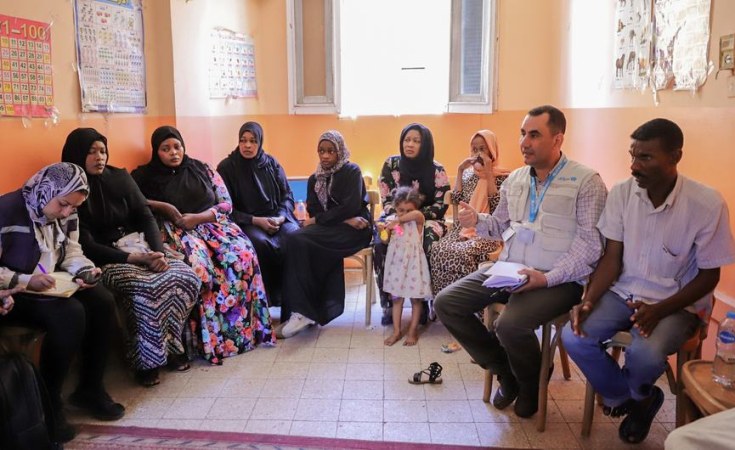Rome — The G7's strong commitment to global food security in 2022 must be maintained in 2023 as new crises in Sudan, Haiti and the Sahel push more people into hunger, the UN World Food Programme said today, just days before G7 leaders were due to meet in Japan. Some 345 million people are currently facing high levels of food insecurity, according to WFP analysis, an increase of almost 200 million since early 2020. Of these, 43 million are just one step away from famine. Meanwhile, WFP has recently been forced to cut food rations in operations in Afghanistan, Bangladesh and Palestine as needs outpace available funding. More cuts are looming in Somalia and Chad.
"Last year, G7 leadership achieved life-saving results in the fight against hunger. Millions of people received much needed support and countries like Somalia were pulled back from the brink of famine. Unfortunately, the global food crisis hasn't gone away. And situations like Sudan and Haiti are adding fuel to the fire," said WFP Executive Director Cindy McCain.
Fighting in Sudan has displaced hundreds of thousands of people and pushed millions into hunger. WFP estimates that between 2 and 2.5 million additional people will become acutely food insecure in coming months as a direct result of ongoing fighting, taking the total in the country to a record 19 million.
In Haiti, hunger is tightening its grip as insecurity, violence and deepening economic woes drive food insecure Haitians further into crisis. A record 4.9 million people in the country are estimated to be facing acute hunger, around 45% of the population. Similarly, in the Sahel region of Africa, new outbreaks of violence in places such as Burkina Faso are driving hunger among fleeing populations as well as those whose lives and livelihoods have been upended by conflict.
WFP calls on G7 countries, all of whom increased funding in 2022, to continue funding food assistance for the hundreds of millions of people affected by the global food crisis and the millions new to hunger since last year. It is also calling for political support for other actions which would help ease the crisis These include working for the continuation of the Black Sea Grain Initiative, ensuring adequate supplies of fertilizer and supporting programmes to increase smallholder farmers' production.
Longer term requests centre on the need to make vulnerable populations more resilient. They include a renewed focus on social protection for communities at risk and ensuring every child in need receives a nutritious meal in school daily.
"We need to step-up assistance, especially when it comes to making our food systems more resilient," said McCain. "If we can prepare at-risk communities to handle future climate shocks, they won't need emergency support the next time there's a drought or flood."
In 2022, Niger faced its worst food security crisis in a decade. Some of the most impacted areas were areas where WFP had had resilience programs. As a result, the vast majority - 80% of villages located in highly affected areas - did not require humanitarian assistance.
At the G7 summit in Germany last year, leaders vowed to "spare no effort to increase global food and nutrition security" and to protect the most vulnerable. They also committed to strengthen the long-term resilience of agriculture and food systems so that poor countries would be less vulnerable in the future.
Conflict remains one of the main drivers of global hunger. Events in Sudan are just the latest example of how food insecurity rises when guns come out. WFP asks G7 countries to "work toward political solutions to protracted crises where conflict is the primary driver of hunger."


